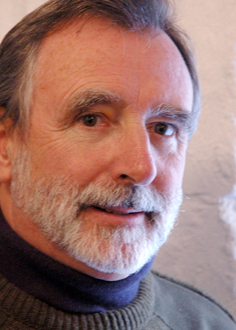29th July 2014 Sofia, Bulgaria
Bulgaria – Our Good Fortune
by Peter Lyner OBE
After three challenging years in Moscow, in 1987 Peter Lyner was appointed Cultural Attaché in Bulgaria and British Council Bulgaria officer. Peter and his wife expected their life in Sofia to be similar to the one they had in Moscow but were proven wrong. Trips across Bulgaria and in the neighbouring countries, Bulgarian fine food and wine, and the welcoming and warm people are just a few of the many fond memories Bulgaria left them with.
“The southern European weather and the excellent wines were bonuses. I began to suspect that perhaps climate may have more effect on people than politics.” – Peter Lyner

My wife and I arrived in Sofia October 1987 to take up the post of Cultural Attaché, I believe the first British Council officer to be posted to Bulgaria. Bulgaria was a delightful surprise after three years in chilly, cold war Moscow. Expecting conditions in Bulgaria to be pretty much the same as they had been in Moscow, I was delighted to find that we were to live in a ground floor apartment, (which later became the first British Council office), opening onto the street with none of the overt guards which we had become accustomed to. And we were able to travel widely without the onerous restrictions we had faced in the Moscow. We could hardly believe our good fortune!
It was great to be able to meet with and to talk to Bulgarians. Georgi Papanchev had done his best to teach me Bulgarian at SSEES in London. But I am no linguist and I must have been quite a frustration to him. However what little Bulgarian I had absorbed from Georgi began to improve a little as I found I really could, and sometime had to, use it.
My Cultural Attaché/ British Council work, while still restricted in some ways, was much more open than I had feared. I had expected the resistance to Western contacts I had known in Moscow, but instead found that I was pretty much pushing at an open door in Sofia. And my wife was able to work; she got a job teaching in an elite Bulgarian school. A first for a Western diplomat’s wife, I believe.
And, of course, the southern European weather and the excellent wines were bonuses. I began to suspect that perhaps climate may have more effect on people than politics.
The shops were still fairly basic then and we often went to Greece to stock up. It always amused me to know that my colleague in Bucharest went south to Russe to shop, while I went south to Greece. All things are indeed relative!
I was in Sofia to see the collapse of communism and to see Bulgaria’s first moves into the post communist world. During the transition, we had barricades outside our apartment. The protest camp that appeared in the centre of town was just round the corner from our apartment. I watched the unthinkable as no efforts were made by the authorities to stamp out the protests. The result seemed then to be inevitable. And it was. Communism disappeared.
I always found my Ambassadors, John Fawcett and then Richard Thomas very supportive of the British Council “cuckoo in their nest”. When Richard Thomas arrived I travelled with him, past guards with chrome plated Kalashnikov rifles, to present his credentials and met both Todor Zhivkov and Petar Mladenov.
Very sadly for me I had to leave Bulgaria in 1990. I would have loved to have stayed on to see the evolution of the new Bulgaria, but family matters made it essential that I return to Belfast, my home town.
I am left with nothing but warm memories of my time in Bulgaria.
The British Council did fantastic work in Bulgaria in 1989 and onwards, very much thanks to your pioneering work, Peter, on which David Stokes was able to build after you left.